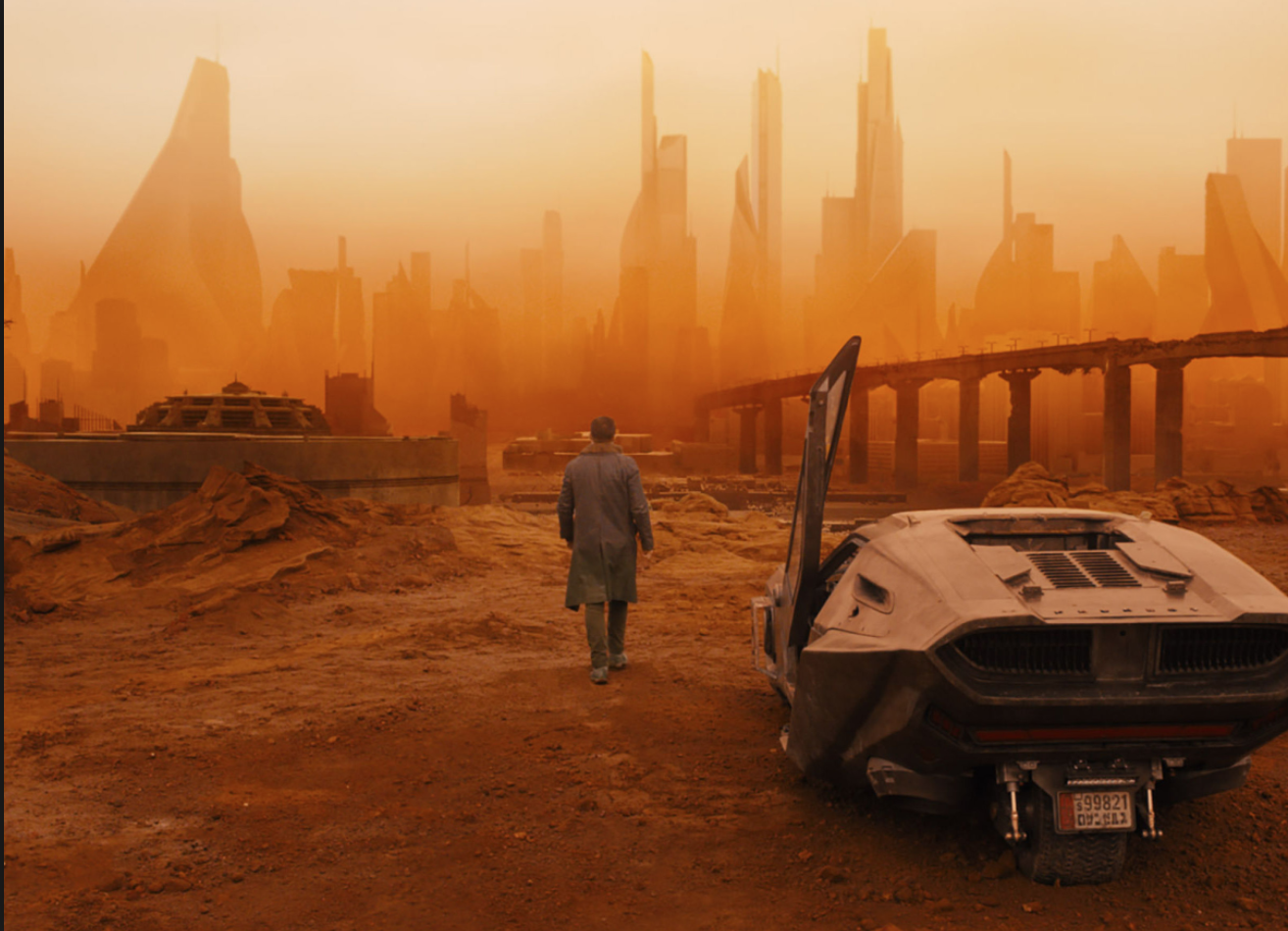A caustic observation about Blade Runner 2049 from Michael Deeley, British-born producer of Ridley Scott’s ’82 original, appeared in a 10.30 Screen Daily interview: “I’m not looking forward to seeing it, but I will. [Blade Runner 2049] is very long. It must have been cut-able and should have been. They can’t do better [box office] because they can’t play it more than three times a day because it’s just too long, which is of course self-indulgent at the very least, arrogant probably…it’s criminal.”
Remove the epithets and Deadline‘s Anthony D’Allesandro said more or less the same thing on 10.7: “That 163-minute running time is a killer. Forget about the fact that Blade Runner 2049 has its slow moments. Once you count the trailer pre-show, how do you ask audiences to commit four hours of their time to sit in the theater?”

Blade Runner 2049 opened three and a half weeks ago. Has it been, in fact, a financial bust? The answer appears to be “yes.”
As of 10.29 the domestic tally was $81,538,180, and the overseas earnings were $141,595,133 for a grand total of $223,133,333. The negative cost is thought to be in the range of $170 million with p & a costs around $130 million for a total of $300 million.
D’Allesandro also reported that “those affiliated with the movie have been saying that $400 million is the magic break-even number,” although that estimate was based on a lower production cost estimate of $155 million.”
Even if you accept $400 million as a break-even plateau, Blade Runner 2049 is nearly a month into its run and a bit more than $175 million short of that figure. ($400 million minus $223,133,333 — $176,866,667.)
But Warner Bros. is in the clear. It has no investment in the film and has simply collecting a distribution free of somewhere between 8% and 10%. Sony Pictures Releasing is distributing internationally and is also not looking at a painful downside. If there’s a loser in the equation it may be Alcon Entertainment.












